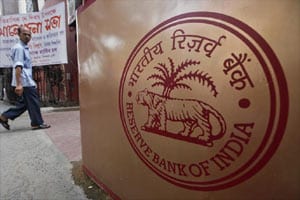In Tuesday’s Reserve Bank of India (RBI) monetary policy review, Governor Raghuram Rajan-led central bank is unlikely to propose any further repo rate cuts, analysts aver. In RBI’s previous policy review on September 29, the central bank cut the repo rate, at which it lends to commercial banks, by 50 basis points to 6.75 percent, raising the cumulative rate cuts for the calendar year to a massive 125 basis points.
Analysts say RBI is unlikely to cut rates further, ahead of the US Federal Reserve’s policy review due mid-December.
1. Assocham clarified, “Fast changing geo-political situation in the Middle East and the increased terror threat with consequent economic costs will surely weigh on the RBI’s policy stance which is not expected to give any more cut in the interest rates in the ensuing review”.
2. Industry chamber added, “Then the whole issue of rupee stability in the backdrop of chances that US Fed may raise the interest rates, would influence the monetary policy and the industry must be prepared for the unfolding events,” the industry chamber said in a pre-policy note.
3. Chamber added that certain steps over the recent weeks too are coming in the way. It said, “Given the ‘front-loaded’ rate cut in September 2015 and the incrementally modest transmission of past easing, the uncertainty related to the monsoon and efficacy of food management in 2016 and the impact of the impending pay revision for government employees pose key risks to the achievement of the RBI’s target of containing CPI inflation below 5 percent by Q4 FY17”.
Consumer price-indexed (CPI) – or retail – inflation rose in October to 5 percent, which was a four-month high. Inflation, in September, was at 4.41 percent.
The government’s total outlay for paying salaries to its staff will rise Rs 102,000 crore, which, if the 7th Pay Commission report recommendations are accepted in totality, will put pressure on its fiscal deficit control efforts.
Rabi crop output has been lower than expected, while prices of pulses have been rising, which are bound to put pressure on food inflation.
The RBI recently lowered its growth forecast for the country’s current fiscal to 7.4 percent, from the 7.6 percent it had projected earlier.
With IANS inputs

